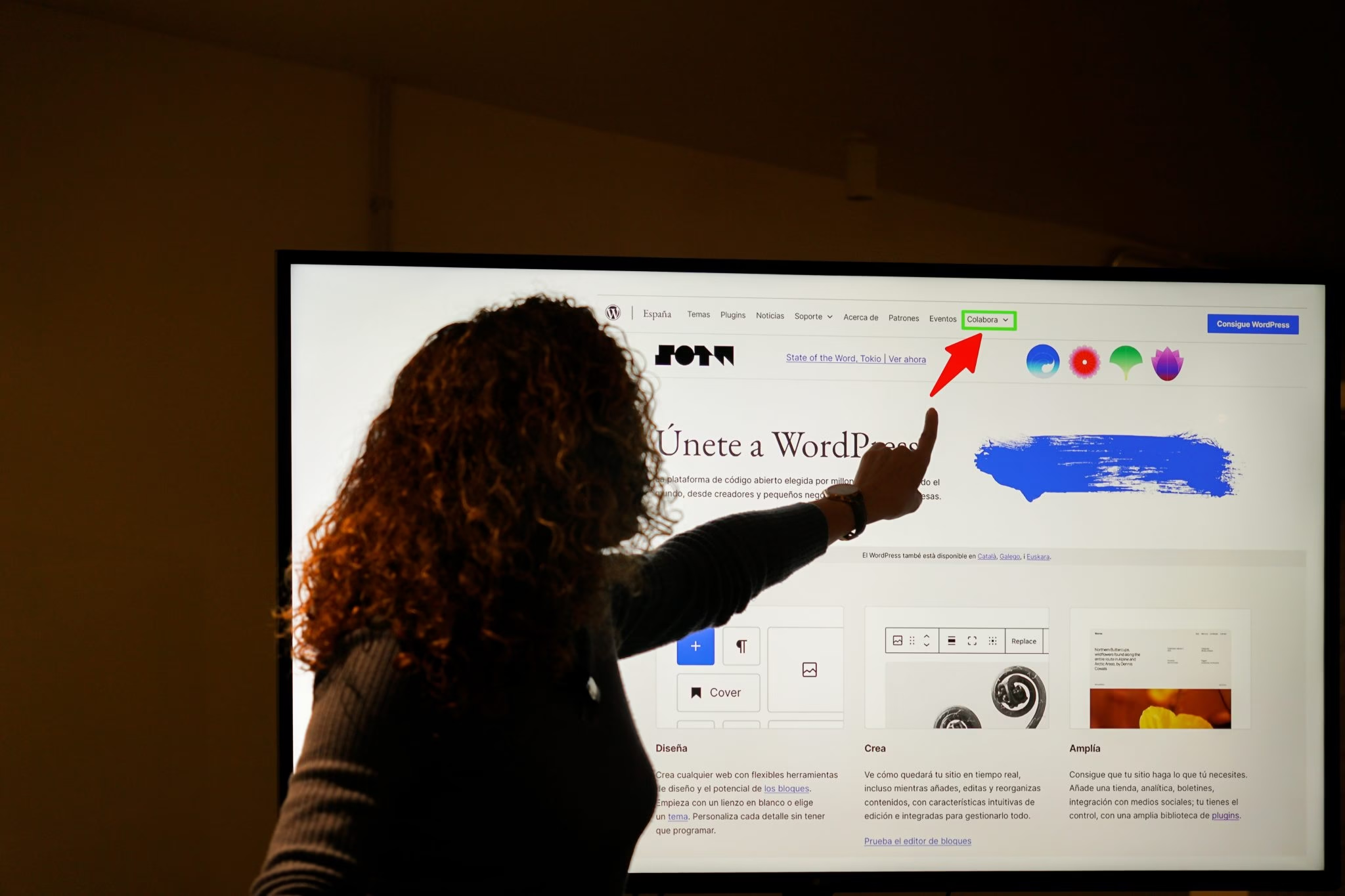Imagine having a salesperson who never sleeps, never takes breaks, and is always ready to showcase your products or services. That’s precisely why every small business needs a website. In today’s digital age, where consumers expect instant access to information, having an online presence is crucial. A website ensures that potential customers can find you anytime, anywhere, even outside of regular business hours.
Consider this: over 81% of shoppers research a business online before making a purchase decision. Without a website, you risk missing out on these potential customers who are actively seeking your products or services. By establishing an online presence, you not only increase your visibility but also build credibility and trust with your audience
Building Trust and Credibility
A professional website serves as a digital storefront, providing customers with a glimpse into your business’s values, offerings, and professionalism. It’s an opportunity to make a strong first impression and differentiate yourself from competitors. In fact, 75% of users make judgments about a company’s credibility based on its website design.
Moreover, a website allows you to showcase customer testimonials, case studies, and reviews, further reinforcing your credibility. By providing valuable content and demonstrating your expertise, you position your business as a trusted authority in your industry.
Enhancing Customer Engagement
Beyond serving as an information hub, a website offers various tools to engage and interact with your audience. Features like contact forms, live chat support, and newsletter sign-ups enable you to capture leads and nurture relationships with potential customers. Additionally, every small business needs a website for integrating social media feeds and sharing blog posts can keep your audience informed and engaged with your brand.
Furthermore, a website provides insights into customer behavior through analytics tools. By understanding how visitors interact with your site, you can make data-driven decisions to optimize user experience and improve conversion rates.
Expanding Your Reach
Unlike a physical storefront limited by geographical boundaries, a website allows you to reach a global audience. Whether you’re a local bakery or an online retailer, having an online presence opens up new opportunities for growth and expansion. With the right SEO strategies and digital marketing efforts, you can attract customers from different regions and demographics.
Moreover, a website enables you to showcase your products or services 24/7, catering to customers in different time zones and accommodating their schedules. This accessibility not only increases sales potential but also enhances customer satisfaction and loyalty.

Website for Small Business
DIY vs Pro Build: What Works for Small Budgets
The DIY Route: Budget-Friendly and Empowering
In 2025, small businesses often grapple with the decision of building their website or hiring a professional. Opting for a DIY approach can be cost-effective, especially with platforms like Wix, Squarespace, and WordPress offering user-friendly interfaces and affordable plans. These tools empower you to take control of your online presence without breaking the bank.
However, while DIY platforms are accessible, they come with limitations. Designing a website that is both aesthetically pleasing and functionally robust requires time, effort, and a learning curve. You might find yourself spending hours tweaking templates, adjusting layouts, and troubleshooting issues. Moreover, ensuring your website is optimized for search engines and mobile devices can be challenging without technical expertise.The Sun
Despite these challenges, a DIY website can be a viable option for startups and small businesses with tight budgets. It allows you to establish an online presence quickly and provides the flexibility to make updates as your business evolves. Just be prepared to invest time and effort into learning the ropes of website design and maintenance.
Hiring a Professional: Investing in Quality and Expertise
On the other hand, hiring a professional web designer offers several advantages. A seasoned designer brings expertise in creating a visually appealing, user-friendly, and SEO-optimized website tailored to your business needs. This can enhance your brand’s credibility and provide a seamless experience for your visitors.
Professional designers also stay updated with the latest web design trends and technologies, ensuring your website remains competitive in the digital landscape. They can integrate advanced features, such as e-commerce capabilities, booking systems, and customer relationship management tools, which might be challenging to implement on your own.
However, hiring a professional comes at a higher cost, which might be a significant consideration for small businesses with limited budgets. Additionally, the development process may take longer, as it involves consultations, revisions, and testing to ensure the final product meets your expectations.
Making the Right Choice for Your Business
When deciding between a DIY website and hiring a professional, consider your budget, time, technical skills, and business goals. If you’re looking for a quick and affordable solution to establish an online presence, a DIY website might suffice. However, if you aim to create a comprehensive, scalable, and polished website that reflects your brand’s identity, investing in a professional designer could be a better choice.LinkedIn
Remember, your website serves as the digital storefront of your business. It’s often the first point of contact for potential customers and plays a crucial role in shaping their perception of your brand. Therefore, it’s essential to ensure your website effectively communicates your value proposition and provides a positive user experience.
The Trust Factor: Why URLs Beat Social Media Alone
Your Digital Storefront: A Website Builds Credibility
In 2025, having a website is essential for small businesses. While social media platforms are valuable for engagement, they don’t replace the credibility a dedicated website offers. A professional website serves as your digital storefront, providing potential customers with a centralized location to learn about your products or services. It allows you to showcase your brand’s identity, share detailed information, and establish trust with your audience.
Moreover, a website gives you control over your content and presentation. Unlike social media profiles, which are subject to platform limitations and algorithms, your website is a space you own and manage. This autonomy enables you to tailor the user experience, optimize for search engines, and implement features that enhance customer interaction. By investing in a website, you’re signaling to customers that your business is legitimate and committed to providing value.
The Limitations of Social Media
Relying solely on social media for your online presence can be risky. Platforms like Facebook, Instagram, and Twitter are subject to algorithm changes, outages, and policy shifts that can impact your visibility and reach. Additionally, these platforms limit your ability to customize your brand’s presentation and often restrict the depth of information you can share.
Furthermore, social media accounts can be suspended or deleted without warning, potentially erasing your entire online presence. In contrast, a website provides stability and continuity, ensuring that customers can always find and interact with your business online. By maintaining a dedicated website, you mitigate the risks associated with platform dependency and safeguard your digital assets.
Enhancing Customer Trust Through Consistency
Consistency is key to building and maintaining customer trust. A website allows you to present a cohesive brand image across all touchpoints, from design and messaging to functionality and user experience. This consistency reinforces your brand’s identity and helps customers feel confident in their interactions with your business.
Moreover, a website enables you to provide comprehensive information about your products or services, answer frequently asked questions, and offer customer support resources. By addressing customer needs proactively, you demonstrate reliability and a commitment to quality service. This proactive approach fosters trust and encourages repeat business.
The Long-Term Value of a Website
Investing in a website yields long-term benefits for your small business. Unlike social media posts, which have a short lifespan, website content remains accessible and continues to attract visitors over time. By regularly updating your website with fresh content, you improve your search engine rankings and increase your visibility to potential customers.
Additionally, a website serves as a hub for your digital marketing efforts. It allows you to integrate email marketing campaigns, track user behavior through analytics, and implement e-commerce functionalities. These capabilities enable you to make data-driven decisions, optimize your marketing strategies, and drive business growth.
Your Domain = Your Digital Land: Claiming Your Space
Owning Your Digital Address: Why It Matters
In 2025, establishing a strong online presence is crucial for small businesses. While social media platforms offer visibility, they don’t provide the ownership and control that a custom domain does. Think of your domain as your digital address—a place where customers can reliably find and interact with your brand. It’s a cornerstone of your online identity, offering a consistent and professional image that social media alone can’t match.
Moreover, a custom domain enhances your brand’s credibility. Customers are more likely to trust a business with a professional web address than one relying solely on social media profiles. It signals that you’re serious about your business and committed to providing a reliable service. In an era where online scams are prevalent, this trust factor is invaluable.
Building Brand Identity Through Your Domain
Your domain name is more than just a web address; it’s an integral part of your brand identity. It should reflect your business name, values, and the services you offer. A well-chosen domain name makes your business more memorable and easier to find online. It also sets the tone for your brand, conveying professionalism and attention to detail.
Additionally, a custom domain allows for branded email addresses, such as info@yourbusiness.com. This not only looks more professional but also reinforces your brand every time you send an email. It’s a small detail that can make a significant difference in how customers perceive your business.
Enhancing SEO and Online Visibility
Having a custom domain can also improve your website’s search engine optimization (SEO). Search engines like Google favor websites with relevant, descriptive domain names. This can lead to higher rankings in search results, making it easier for potential customers to find you online. In contrast, relying solely on social media platforms can limit your visibility, as you’re competing with countless other profiles and content.
Furthermore, a custom domain gives you the flexibility to create subdomains for different aspects of your business, such as blog.yourbusiness.com or shop.yourbusiness.com. This organizational structure can enhance user experience and make your website more navigable, further boosting your SEO efforts.
Long-Term Investment and Control
Investing in a custom domain is a long-term commitment to your business’s online presence. Unlike social media platforms, which can change policies or algorithms at any time, your domain remains under your control. This stability allows you to build and maintain a consistent online presence over time. It’s an investment that can pay dividends in customer trust and brand recognition.
Moreover, owning your domain means you can adapt and expand your website as your business grows. Whether you’re adding new products, launching a blog, or integrating e-commerce capabilities, having control over your domain makes these transitions smoother and more efficient. It’s a foundation upon which you can build and evolve your online presence to meet changing business needs.
In conclusion, while social media platforms are valuable tools for engagement and marketing, they shouldn’t be your sole online presence. A custom domain provides ownership, control, and credibility that social media alone can’t offer. It’s a vital component of your business’s digital strategy, helping you establish a strong, trustworthy, and adaptable online presence.
For more help setting up a robust professional online presence, check out our page.




